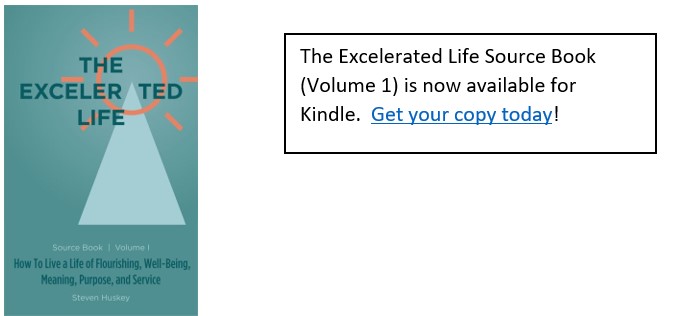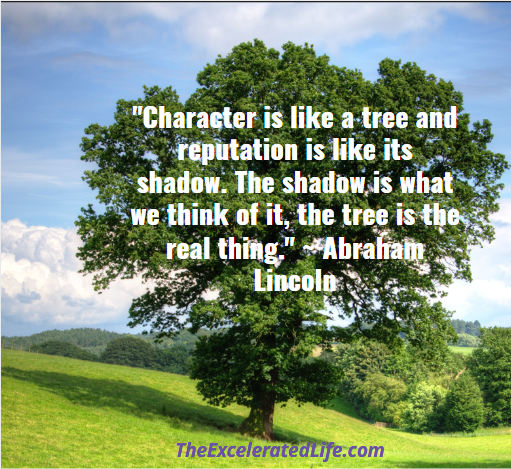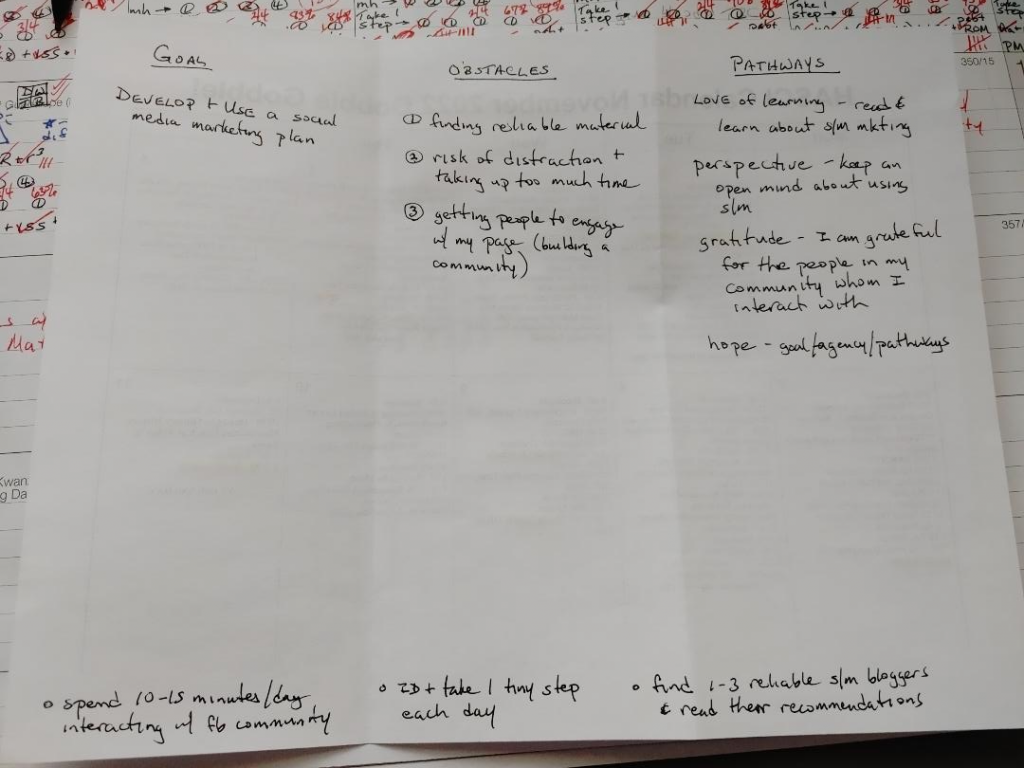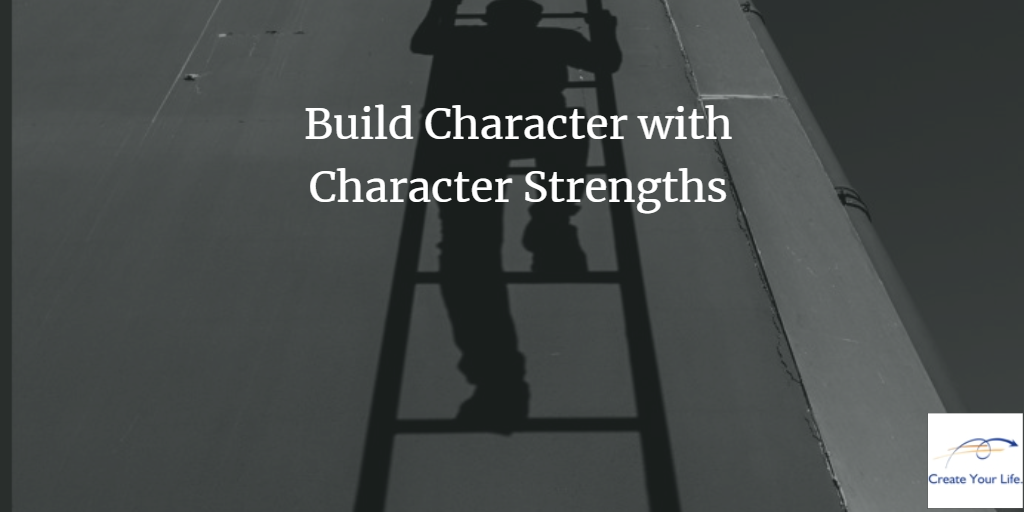Character matters and focusing on your character strengths helps to enhance your character, helps you be the best you. One way to identify your own excellent character traits is to know your Signature Strengths. And not only know what they are but take active measures to live them.
Title Photo by Emrah Yazıcıoğlu
A Foolish Donkey
“Character isn’t something you’re born with and can’t change, like your fingerprints. It’s something you weren’t born with and must take responsibility for forming.” ~ Jim Rohn
A donkey found a lion skin left to dry in the sun by some hunters. No one was around, so the donkey put the lion skin on. As he walked toward his village, people and animals fled in fright before him. This made him a proud donkey indeed. So proud, in fact, that he couldn’t resist lifting his head and braying loudly.
Right away, of course, everyone recognized him by his voice. His owner came up to him, stripped him of the lion skin, and gave him a severe beating for frightening the village. Later a fox came up to him and said, “Ah, I knew you by your voice. Fine clothes may disguise but silly words always disclose a fool.” [1]

Why Character Matters
Our donkey friend overlooked an important part of living true to oneself. He could have been a first-class donkey, instead, he attempted to be a third-rate lion through deception. His character needed a major improvement. Because in the long run, character matters.
“Man’s (and we could add ‘Donkey’s) ideal state is realized when he has fulfilled the purpose for which he is born,” writes the Stoic philosopher, Seneca. “And what is it that reason demands of him? Something very easy — that he live in accordance with his own nature.” [Seneca]
How do we know our “nature” and our purpose? A good place to start is to examine your own VIA Character Strengths classification, paying particular attention to your “Signature Strengths”. To strengthen your character, use your character strengths.
Résumé Virtues and Eulogy Virtues
“What human beings can be,” wrote Abraham Maslow, “they must be.” This is how we fulfill our potential, how we reach – in Maslow’s terminology – self-actualization. To reach self-actualization is to become the “completely realized person” you were meant to be. You embrace all your possibilities and stretch to reach your full potential. [Maxwell]
But this does not mean simply fulfilling our résumé virtues, focusing solely on our accomplishments and achievements. [Holladay] That brings happiness and a sense of well-being for a short time, but then hedonic adaptation kicks in, and those good feelings evaporate.
We should also accentuate our eulogy virtues, our excellent traits of character. [Holladay] One way to identify your own excellent character traits is to know your Signature Strengths. And not only know what they are but take active measures to live them. Because life isn’t only about what you gain, it’s what you give back as well.
Building Character with Character Strengths
“Character is the part of your personality that other people tend to admire, respect, and cherish,” writes Ryan Niemiec in The Power of Character Strengths. “It is the sum total of those aspects of who you are as a person that leads others to see you as a person with integrity, a person who contributes, a person who can be trusted.” So, you see, character matters.
Character strengths can be developed, Ryan goes on to say. Because character can change, we can improve our character by developing our strengths. [Niemiec]
Focus on Character and Character Strengths
As we’ve discussed before, Niemiec and McGrath identify three attributes of using your Signature Strengths. They call these the “Three E’s”. Essential – they are embodied in who you are as a person. Effortless – they feel natural and easy to use. Energizing – using them leaves you feeling “happy, in balance, and ready to take on more.” [Niemiec]
Focusing on your character strengths helps to enhance your character, to help you be the best you. “Unless your goal is to be mediocre at a lot of things”, then paying attention to and using your strengths is the fastest way to become your best self. [Rath] Instead of trying “to be anything you want to be”, be more of who you already are. [Rath] Focus on using your Signature Strengths to be the best you you can be.
Benefits of Using Your Strengths
What do you gain when you play to your strengths? Research suggests that using your strengths daily improves your well-being in a number of ways.
- You experience increased resilience. You’re able to bounce back quicker and higher when you experience a setback.
- You enjoy increased vitality. You feel more energetic, more “alive”!
- You see a decrease in your stress levels. As your resilience goes up, you find less to be stressed about.
- You have increased confidence and self-esteem. You feel better about your ability to do what you need and want to do.
- Your happiness increases. And by happiness, we’re talking about all the aspects of positivity and well-being.
[Grenville-Cleave]

Getting Started
If improving your character by using your Signature Strengths in more ways sounds hopeful and helpful to you, here are some steps to get you started. [Polly]
- Discover your unique character strengths classification, especially your Signature Strengths, by taking the assessment at the VIA Institute on Character website. The survey is free but you must register in order to participate.
- Explore your strengths, especially your Signature Strengths. Your survey results give you additional information about the strengths and you can find more at the VIA website.
- Now, find ways to actively use your strengths as you work toward your BIG goal and when you face the inevitable problems and opportunities.
Hope Maps
Shane Lopez, the author of Making Hope Happen, identifies three aspects of Hope. The specific parts of hope, Lopez said, are 1) having a goal, 2) identifying multiple pathways to reach your goal, and 3) believing you have the capabilities (he calls it “agency) to reach the goal. On the VIA Institute website, positive psychologist Michelle McQuaid shares Lopez’ “hope map”. Here’s how to make your own for incorporating your unique Signature Strengths. [McQuaid]
- Take a sheet of paper and fold it into thirds horizontally (on the long edge).
- On the first third of the paper, write “Goals” and then list a specific goal for using your Signature Strengths more.
- On the last third of the paper, write “Pathways” at the top and jot down at least three different pathways you can take to reach the goal.
- Label the middle third “Obstacles”, then write down at least one obstacle you might face for each of the pathways. (This is similar to Gabriel Oettengin’s WOOP – Wish/Outcome/Obstacle/Plan. )
- Around the edges of the paper, list ideas for overcoming the obstacles and ways to maintain your motivation to stay the course and complete the goal. How will you measure your progress? How will you celebrate each step?
A Hope Map in Action
Here you see an example of one of my hope maps.

This is a project I’ve been working on for a couple of weeks but one on which I’ve made little progress. So, I made this hope map to help me get moving.
My goal = “To develop and use a social media marketing plan.”
Obstacles I’ve come up against are 1) finding reliable information about social media marketing, 2) the risk inherent in social media of becoming a distraction and taking up too much time, and 3) how to get people to engage with my Facebook page.
My pathways consist of four of my Signature Strengths: love of learning, perspective, gratitude, and hope. For each strength, I jotted down ways they could help me overcome the obstacles.
Love of learning – I can read and learn about social media marketing.
Perspective – I can keep an open mind about using social media (and not view it as simply a distraction).
Gratitude – I am grateful for the people in my community whom I interact with.
Hope – I have a goal, I believe I can achieve the goal (agency), and I have pathways for reaching the goal.
Along the bottom, I’ve listed some ideas for overcoming the obstacles and for keeping me moving toward the objective: 1) spend 10 – 15 minutes per day interacting with my Facebook community. 2) Identify and take one tiny step each day. 3) Find 1 – 3 reliable social media bloggers and read their recommendations.
So, if you’re stuck on a project or goal, try making a hope map using your unique Signature Strengths.
Character Matters
Character matters and focusing on your character strengths helps to enhance your character, helps you be the best you. Are there parts of your character that could be updated and improved? How’s your integrity? Your work ethic? How is your spiritual life? Your mental and emotional health?
Keep in mind that using more of your Signature Strengths and using them more often improves your happiness and well-being, gives a boost to your self-esteem and vitality, and increases resilience. Learning and then using your own unique strengths is a way to reach self-actualization and become the person you were meant to be. You embrace all your possibilities and stretch to reach your full potential. Remember, life isn’t only about what you gain. It’s what you give back as well. And when you give your best in Service to the world . . . well, that’s embracing your Excelerated Life™!
How do you feel, what do you do, when you’re operating as your best self?
How could you use your unique combination of strengths to be your best more often?
Share your thoughts by leaving a comment below.
Excelerated Strengths™ — discovering and using your Signature Strengths — is one step in creating your Excelerated Life™, a life of flourishing and well-being, and a life of meaning, purpose, and service.
Read more about the Excelerated Life™.
Footnotes:
[1] Adapted from “The Donkey in the Lion’s Skin”. (See resources.)
Resources:
Grenville-Cleave, Bridget. Positive Psychology: A Practical Guide. New York: MJF Books. 2012.
Holladay, J. Douglas. Rethinking Success. New York: HarperOne, an imprint of HarperCollins Publishers Inc., 2020.
Lopez, PhD, Shane J. Making Hope Happen. New York: Atria Books, a Division of Simon & Schuster, 2013.
Maxwell, John C. How Successful People Grow. New York: Center Street, Hachette Book Group, 2014.
McQuaid, Michelle. “Don’t Make a Wish – Try Hope Instead.” VIA Institute on Character. VIA Institute on Character, anuary 31, 2014. Web. December 12, 2022.
https://www.viacharacter.org/topics/articles/don%27t-make-a-wish-try-hope-instead
Niemiec, PhD., Ryan and Robert E McGrath, PhD. The Power of Character Strengths: Appreciate and Ignite Your Positive Personality. Cincinnati, Ohio: VIA Institute on Character, 2019.
Polly, Shannon and Kathryn Britton. Character Strengths Matter: How To Live A Full Life. Positive Psychology News, LLC, 2015.
Rath, Tom. Are You Fully Charged? Arlington, VA: Silicon Guild, an Imprint of Missionday, 2015.
Seneca, Lucius Annaeus. Letters from a Stoic. New York: Penguin Books, 1969.
“The Donkey in the Lion’s Skin.” Lit2Go. Florida Center for Instructional Technology, College of Education, University of South Florida,,. Web. December 10, 2022.
https://etc.usf.edu/lit2go/35/aesops-fables/384/the-donkey-in-the-lions-skin/


